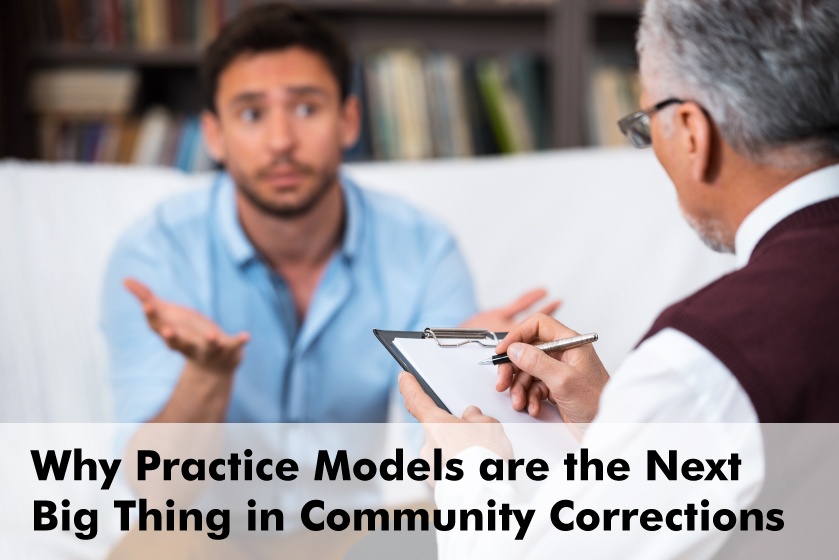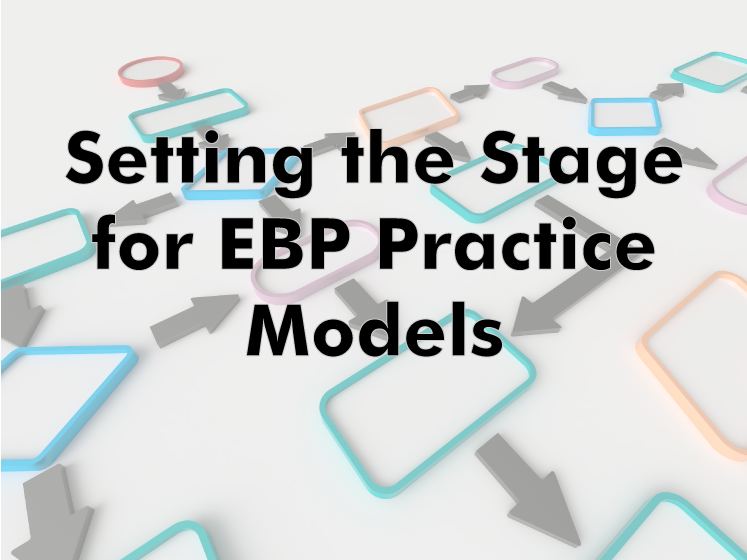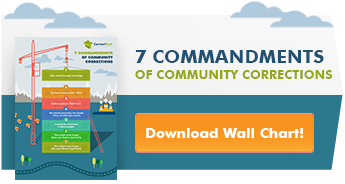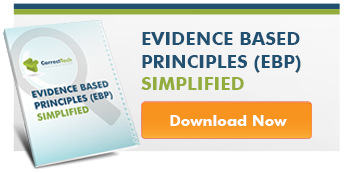In earlier blogs, we discussed some of the advantages of case planning from a risk-reduction perspective. One of the key challenges in operating from a risk perspective is answering a critical question, Where do mental health symptoms fit when working with justice-involved adolescents and adults?
Read MoreMaking Sense of the Interrelationship Between Criminal Risk Domains and Mental Health Symptoms
Posted by Raymond Chip Tafrate, PhD, Damon Mitchell, PhD, & David J. Simourd, PhD on 10/10/19 10:36 PM
Topics: Community Corrections, Evidence Based Practices, Assessment, Risk Principle, Practice Models, responsivity, reentry, high risk client
Why Practice Models are the Next Big Thing in Community Corrections
Posted by Evan C. Crist, Psy.D. on 12/15/16 1:44 PM
Note from the editor: This blog is a continuation of the EBP Practice Models blog series started by this blog’s author Evan C. Crist, Psy.D. and other industry leading authorities on practice models, Brad Bogue, Matt Moore and Tom O’Connor.
This blog has two parts.
Part I, The Changing Function of a Case Manager, paints a picture of how the role of community corrections practitioners is constantly changing as the field and its stakeholder’s expectations evolve and expand.
Part II, More Effective Treatment, explains the need for a coherent intervention strategy based on logic and research to help case managers do the treatment oriented work we are expecting more and more from them. We suggest Practice Models are the answer to our need for this intervention strategy. Although EBP has been viewed by some as a nuisance, adding more work to already overloaded case managers, read below to see how we think differently.
PART I – The Changing Function of a Case Manager
Case Manager or Psychologist? Or both?
As a participant of community corrections for the better part of two decades, I’ve noticed an interesting and predictable shift in the industry. Yes, it is becoming more treatment oriented, but the change that I find more interesting is the shift to teaching paraprofessionals to deliver specialized services generally allotted for master’s level or doctoral level therapists.
I’ve seen this happen throughout my psychologist career and I don’t think it is good or bad, rather a normal progression of a maturing industry that needs to provide more services to a larger population without the benefit of a significant increase in government funded resources.
But why?
Read MoreTopics: Evidence Based Practices, Change, Practice Models, Treatment
Setting the Stage for EBP Practice Models
Posted by Brad Bogue on 9/28/16 11:21 AM
This is the first installment of the blog series, Setting the Stage for EBP Practice Models with Brad Bogue, Evan C. Crist, Psy.D., Matt Moore and Tom O’Connor.
You may be wondering, “what the heck is a ‘Practice Model’?”
Or if you have been exposed to the term somewhere previously might be thinking, “Yeah, I’d like to see how all this works, or how it turns out to benefit me?”
And for those of you still struggling to make sense of even one evidence-based practice (e.g., cognitive skill-building, Motivational Interviewing, role clarification, relapse prevention, etc.), you probably have conflicted feelings about seriously committing to mastering that particular EBP, this thought piece may offer a key.
First, let’s define what a practice model is:
A practice model describes in detail the practices that line staff should follow to prevent more crime and promote the social and human capital (rehabilitation) of people under supervision.
A practice model is an integrated set of evidence-based practices and principles (EBP) that, when implemented with fidelity by the agency and its officers, will result in desirable public safety outcomes.
If this is new information to you, don’t be alarmed.
This is New
Practice models (PMs) haven’t been around the fields of community supervision or corrections very long.
Topics: Practice Models
Subscribe To Our Blog
Recent Posts
Posts by Topic
- Community Corrections (61)
- Evidence Based Practices (44)
- Community Corrections Professional (23)
- Software (15)
- Practices (12)
- Change (11)
- Technology (10)
- Risk Principle (8)
- reentry (8)
- probation staff (7)
- EBP (6)
- Outcomes (6)
- client development (6)
- client needs and values (6)
- coaching community corrections clients (6)
- Assessment (5)
- Community (5)
- Developing a practice model (5)
- Justice-Involved Clients (5)
- Remote work (5)
- The Coaching Habit (5)
- parole (5)
- risk (5)
- tele-supervision (5)
- tele-work (5)
- Community Engagement (4)
- Evan C. Crist (4)
- Community Corrections Client Services (3)
- Criminal Justice Reform (3)
- Implementation (3)
- Listening Skills (3)
- Motivational Interviewing (3)
- Policy (3)
- Positive Reinforcement (3)
- Practice Models (3)
- high risk client (3)
- reaching clients emotions (3)
- responsivity (3)
- Addiction (2)
- BOP (2)
- Conferences (2)
- ICCA (2)
- Management (2)
- Michael Bungay Stanier (2)
- Relapse Prevention (2)
- halfway house (2)
- jic (2)
- principles (2)
- procedures (2)
- program results (2)
- APPA (1)
- Appreciative Thinking (1)
- Brian Lovins (1)
- COVID-10 (1)
- Community Connection (1)
- Coronavirus (1)
- Crisis (1)
- Customer Service (1)
- Data Management (1)
- Fidelity (1)
- ICCA Seattle (1)
- Juvenile Corrections (1)
- Leadership (1)
- Monitor History (1)
- Opioid Addiction (1)
- Opioid Crisis (1)
- Orange is the New Black (1)
- Program Data (1)
- Reforms (1)
- Relapse (1)
- Second Chances (1)
- Switch by the Heath Brothers (1)
- Treatment (1)
- drug testing (1)
- going paperless (1)
- govcio outlook (1)
- impact sessions (1)
- innovation (1)
- intrinsic motivation (1)
- justice reinvestment (1)
- marijuana testing (1)
- money savings (1)
- opiod testing (1)
- paperless office (1)
- purpose (1)
- remote working (1)
- resources (1)
- sanction (1)
- staff productivity (1)
- technology solutions provider (1)
- the awe question (1)
- what works (1)
- what's on your heart (1)
- work from home (1)





